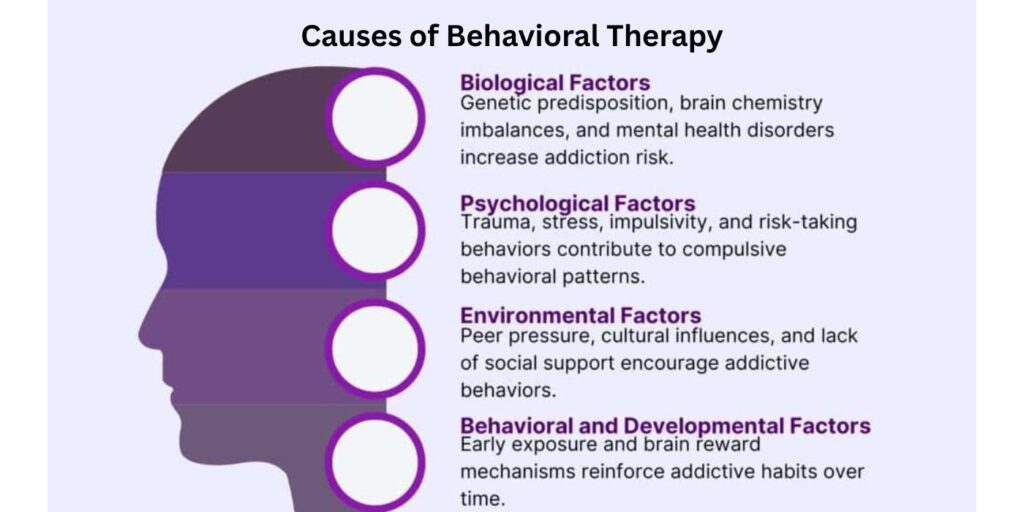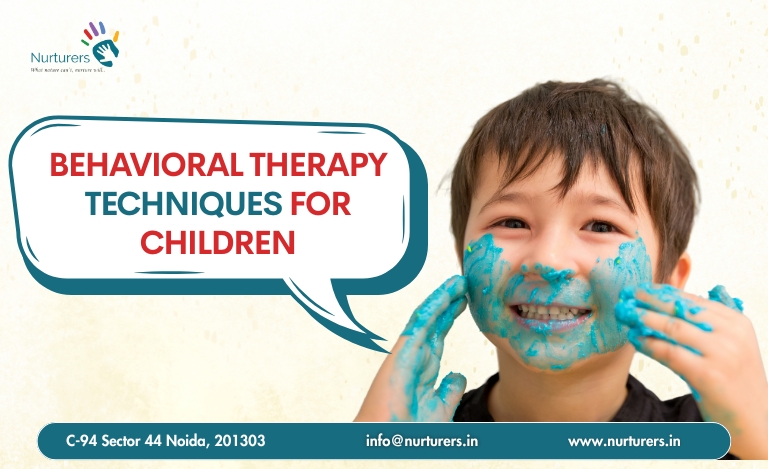Every child is unique, and so are the challenges they face. When a child exhibits recurring behavioral issues, emotional difficulties, or struggles with communication and learning, it’s essential to seek help early. Behavioral therapy techniques have proven to be highly effective in helping children overcome these challenges and lead healthier, more fulfilling lives.
At Nurturers, we specialize in applying scientifically validated therapeutic approaches tailored to each child’s individual needs. Whether you’re new to this field or exploring new ways to support your child, this guide offers deep insight into what behavioral therapy is, its types, causes, and most effective techniques.
What is Behavioral Therapy?
Behavioral therapy is a form of psychotherapy that focuses on changing unhealthy or problematic behaviors through reinforcement strategies and learned responses. Unlike traditional talk therapy, which often focuses on emotions and past experiences, behavioral therapy is action-oriented and goal-focused.
When we define behavior therapy, it involves structured interventions that help children learn new skills, replace negative behaviors with positive ones, and increase their ability to function independently. This approach is particularly beneficial for children with:
- Autism Spectrum Disorder (ASD)
- Attention-Deficit/Hyperactivity Disorder (ADHD)
- Anxiety and depression
- Obsessive-compulsive behaviors
- Oppositional Defiant Disorder (ODD)
- Learning and developmental delays

Causes of Behavioral Therapy Needs in Children
Understanding the causes of behavioral therapy needs can provide valuable context for parents. Behavioral issues rarely arise out of nowhere; they are usually the result of a complex combination of factors, including:
Biological Factors:
- Neurodevelopmental differences (e.g., autism, ADHD)
- Genetic predispositions
- Brain injury or trauma
Psychological Factors:
- Exposure to traumatic events
- Chronic stress or anxiety
- Difficulty processing emotions
Environmental Factors:
- Inconsistent parenting styles
- Exposure to violence or neglect
- Lack of routine or structure
- Poor peer relationships or bullying
Social and Family Influences:
- Divorce or separation
- Parental mental health issues
- Sibling rivalry or household conflicts
At Nurturers, we conduct a thorough behavioral assessment to identify these root causes, ensuring the therapy plan addresses not just the symptoms but also the underlying issues.

Types of Behavioral Therapy for Children
There are several types of behavioral therapy, and the right approach depends on the child’s unique needs, developmental level, and goals. Here are the most commonly used therapies at Nurturers:
1. Applied Behavior Analysis (ABA)
A gold-standard approach for autism therapy, ABA breaks down complex behaviors into smaller, teachable steps using reinforcement techniques. It’s highly structured and data-driven.
2. Cognitive Behavioral Therapy (CBT)
CBT helps older children and teens understand the connection between their thoughts, feelings, and behaviors. It teaches coping strategies for managing anxiety, phobias, and depression.
3. Dialectical Behavior Therapy (DBT)
This is a modified form of CBT that helps children regulate extreme emotional responses and improve interpersonal effectiveness.
4. Play Therapy
Designed for younger children, play therapy provides a safe space to express emotions and learn coping skills through toys, storytelling, and creative play.
5. Parent-Child Interaction Therapy (PCIT)
This empowers parents with tools to improve their child’s behavior and strengthen the parent-child relationship through guided coaching and feedback.
6. Social Skills Training
Many children struggle with social interaction. This therapy teaches communication, empathy, eye contact, turn-taking, and handling peer pressure.

Effective Behavioral Therapy Techniques at Nurturers
Our therapists at Nurturers implement a wide variety of behavioral therapy techniques, all evidence-based and child-centered. Here are some of the most effective techniques we use:
Positive Reinforcement
Rewarding desired behaviors with praise, points, or tangible rewards to encourage repetition. For example, a child may earn extra playtime for completing homework without reminders.
Token Economy Systems
A structured method where children earn tokens for good behavior, which they can trade for preferred items or privileges. It promotes consistency and motivation.
Modeling and Role Play
Children learn by observing others. Our therapists model appropriate behavior and engage in role-play scenarios to teach empathy, communication, and conflict resolution.
Prompting and Shaping
Providing verbal or visual cues to initiate behavior, then gradually reducing prompts as the child gains independence. Shaping involves reinforcing successive steps toward a target behavior.
Time-Out and Logical Consequences
Used sparingly, time-outs help children understand consequences. Logical consequences—like cleaning up a mess they made—help them take responsibility for their actions.
Self-Monitoring Techniques
Older children are taught to track their own behavior, reflect on their actions, and set personal goals. This builds autonomy and self-regulation.
Behavioral Contracts
Written agreements between the child and therapist (and sometimes parents) outlining expected behaviors and consequences. This technique is particularly useful for older children and adolescents.

How Nurturers Deliver Personalized Behavioral Therapy?
At Nurturers, we believe that no two children are alike, and neither should their therapy be. Here’s what makes our behavioral therapy programs stand out:
- Individualized Treatment Plans: Tailored to the child’s age, diagnosis, and unique needs.
- Family Involvement: Parents receive coaching and resources to support the therapy process at home.
- Multidisciplinary Team: Our team includes child psychologists, occupational therapists, special educators, and ABA-trained professionals.
- Progress Monitoring: Regular evaluations and feedback sessions to track growth and make adjustments.
- Safe, Stimulating Environment: Our Noida-based center provides a child-friendly, secure space designed for learning and development.
Conclusion
Understanding what is behavioral therapy, its types, and causes empowers parents to take early, effective steps in supporting their children. With the right behavioral therapy techniques, children can overcome emotional and behavioral challenges, build strong social skills, and thrive both at home and in school.
At Nurturers, we’re committed to walking with you on this journey—with compassion, care, and clinically proven strategies.
Reach out today to learn more about our behavioral therapy programs in Noida and how we can support your child’s unique growth journey.

